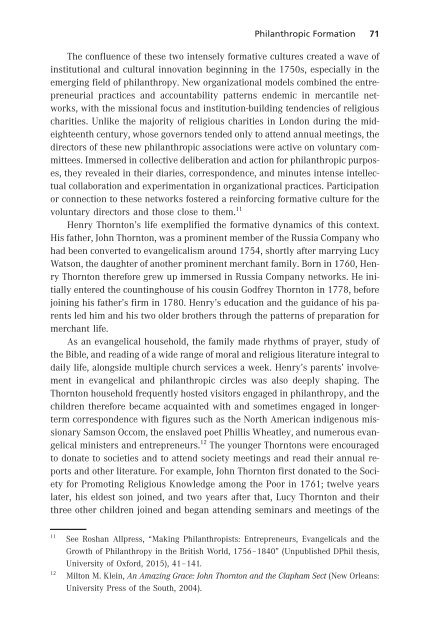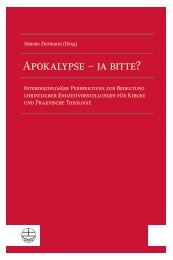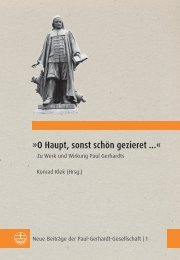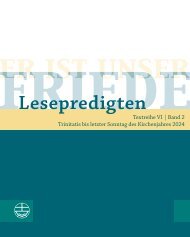Piet Naudé | Michael Welker | John Witte, Jr. (Eds.): The Impact of Political Economy (Leseprobe)
In our late modern pluralistic societies, there are tensions and complementarities between a plurality of individual and social claims and activities to shape societal life and a constructive pluralism of what is known as social systems. The latter provide normative codes and powers emanating from the areas of law, religion, the family, the market, the media, education, academic research, health care, defense and politics. A better understanding and steering of this complex division of powers is crucial for the common good and for freedom and peace. In this volume, a multi-disciplinary team of experts from Germany, Italy, Australia, the UK, the USA, and South Africa bring their conceptual, empirical and historical insights to bear in three broad sections: »The moral dimension of social systems«; »The interaction of religion, law and education with political systems«; and »The moral (mal)-formation evident in case studies on the global financial crisis and social media«.
In our late modern pluralistic societies, there are tensions and complementarities between a plurality of individual and social claims and activities to shape societal life and a constructive pluralism of what is known as social systems. The latter provide normative codes and powers emanating from the areas of law, religion, the family, the market, the media, education, academic research, health care, defense and politics. A better understanding and steering of this complex division of powers is crucial for the common good and for freedom and peace.
In this volume, a multi-disciplinary team of experts from Germany, Italy, Australia, the UK, the USA, and South Africa bring their conceptual, empirical and historical insights to bear in three broad sections: »The moral dimension of social systems«; »The interaction of religion, law and education with political systems«; and »The moral (mal)-formation evident in case studies on the global financial crisis and social media«.
Create successful ePaper yourself
Turn your PDF publications into a flip-book with our unique Google optimized e-Paper software.
Philanthropic Formation 71<br />
<strong>The</strong> confluence <strong>of</strong> these two intensely formative cultures created awave <strong>of</strong><br />
institutional and cultural innovation beginning in the 1750s, especially in the<br />
emerging field <strong>of</strong> philanthropy. New organizational models combined the entrepreneurial<br />
practices and accountability patterns endemic in mercantile networks,<br />
with the missional focus and institution-building tendencies <strong>of</strong> religious<br />
charities. Unlike the majority <strong>of</strong> religious charities in London during the mideighteenthcentury,<br />
whose governors tended only to attend annual meetings, the<br />
directors <strong>of</strong> these new philanthropic associations were active on voluntary committees.<br />
Immersed in collective deliberation and action for philanthropic purposes,<br />
they revealed in their diaries, correspondence, and minutes intense intellectual<br />
collaboration and experimentation in organizational practices. Participation<br />
or connection tothese networks fostered areinforcing formative culture for the<br />
voluntary directors and those close to them. 11<br />
Henry Thornton’s life exemplified the formative dynamics <strong>of</strong> this context.<br />
His father, <strong>John</strong> Thornton, was aprominent member <strong>of</strong> the Russia Company who<br />
had been convertedtoevangelicalism around 1754, shortly after marrying Lucy<br />
Watson, the daughter <strong>of</strong> anotherprominent merchant family. Born in 1760, Henry<br />
Thornton therefore grew up immersed in Russia Company networks. Heinitially<br />
entered the countinghouse <strong>of</strong> his cousin Godfrey Thornton in 1778, before<br />
joining his father’s firm in 1780. Henry’s education and the guidance <strong>of</strong> his parents<br />
led him and his two older brothers through the patterns <strong>of</strong> preparation for<br />
merchant life.<br />
As an evangelical household, the family made rhythms <strong>of</strong> prayer, study <strong>of</strong><br />
the Bible, and reading <strong>of</strong> awide range <strong>of</strong> moral and religious literature integral to<br />
daily life, alongside multiple church services aweek. Henry’s parents’ involvement<br />
in evangelical and philanthropic circles was also deeply shaping. <strong>The</strong><br />
Thorntonhousehold frequentlyhosted visitors engaged in philanthropy, and the<br />
children therefore became acquainted with and sometimes engaged in longerterm<br />
correspondence with figures such as the North American indigenous missionary<br />
Samson Occom, the enslaved poet Phillis Wheatley, and numerous evangelical<br />
ministers and entrepreneurs. 12 <strong>The</strong> younger Thorntons were encouraged<br />
to donate to societies and to attend society meetings and read their annual reports<br />
and other literature. For example, <strong>John</strong> Thornton first donated tothe Society<br />
for Promoting Religious Knowledge among the Poor in 1761; twelve years<br />
later, his eldest son joined, and two years after that, Lucy Thornton and their<br />
three other children joined and began attending seminars and meetings <strong>of</strong> the<br />
11<br />
12<br />
See Roshan Allpress, “Making Philanthropists: Entrepreneurs, Evangelicals and the<br />
Growth <strong>of</strong> Philanthropy in the British World, 1756–1840” (Unpublished DPhil thesis,<br />
University <strong>of</strong> Oxford, 2015), 41–141.<br />
Milton M. Klein, An Amazing Grace: <strong>John</strong> Thornton and the Clapham Sect (New Orleans:<br />
University Press <strong>of</strong> the South, 2004).
















